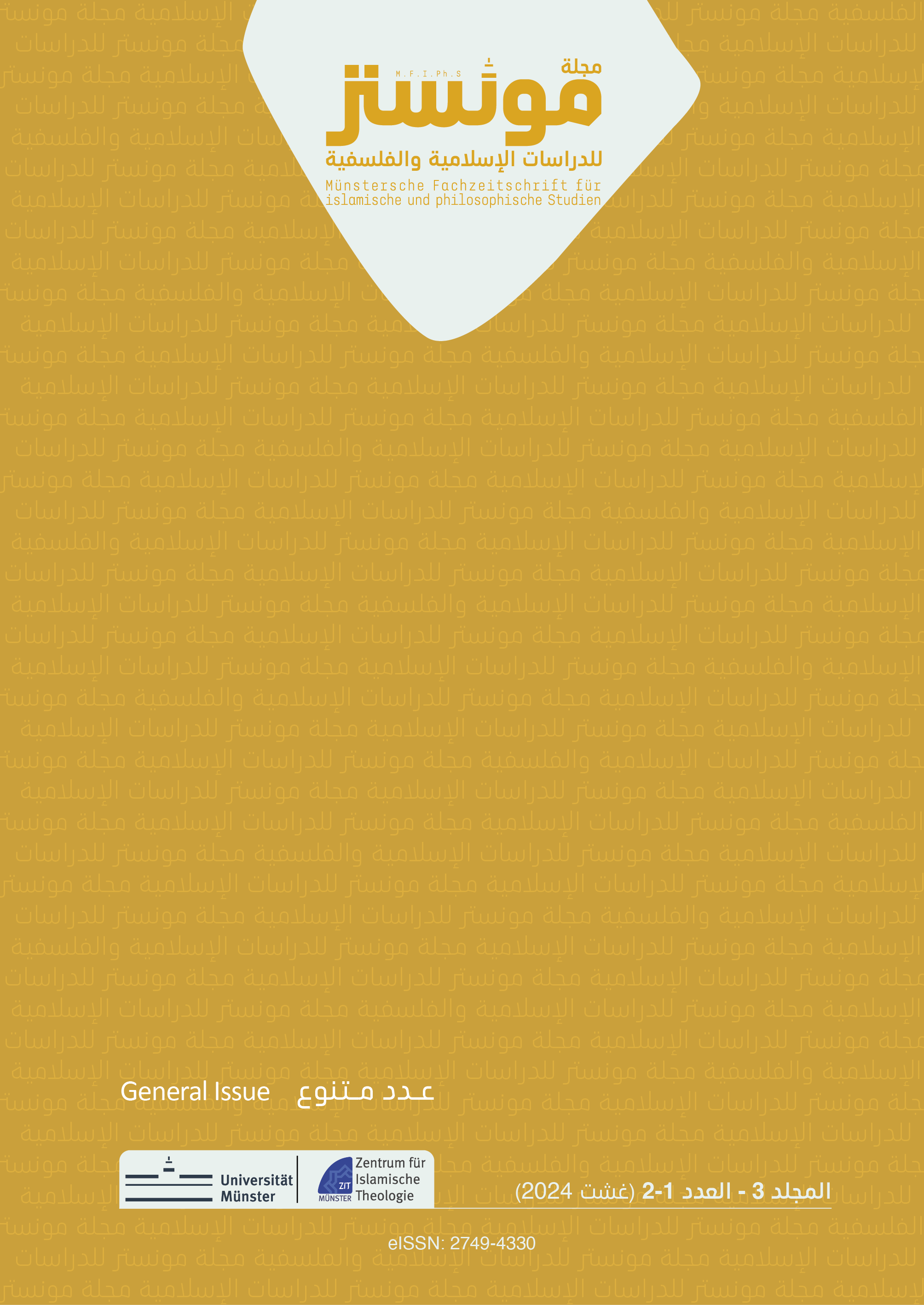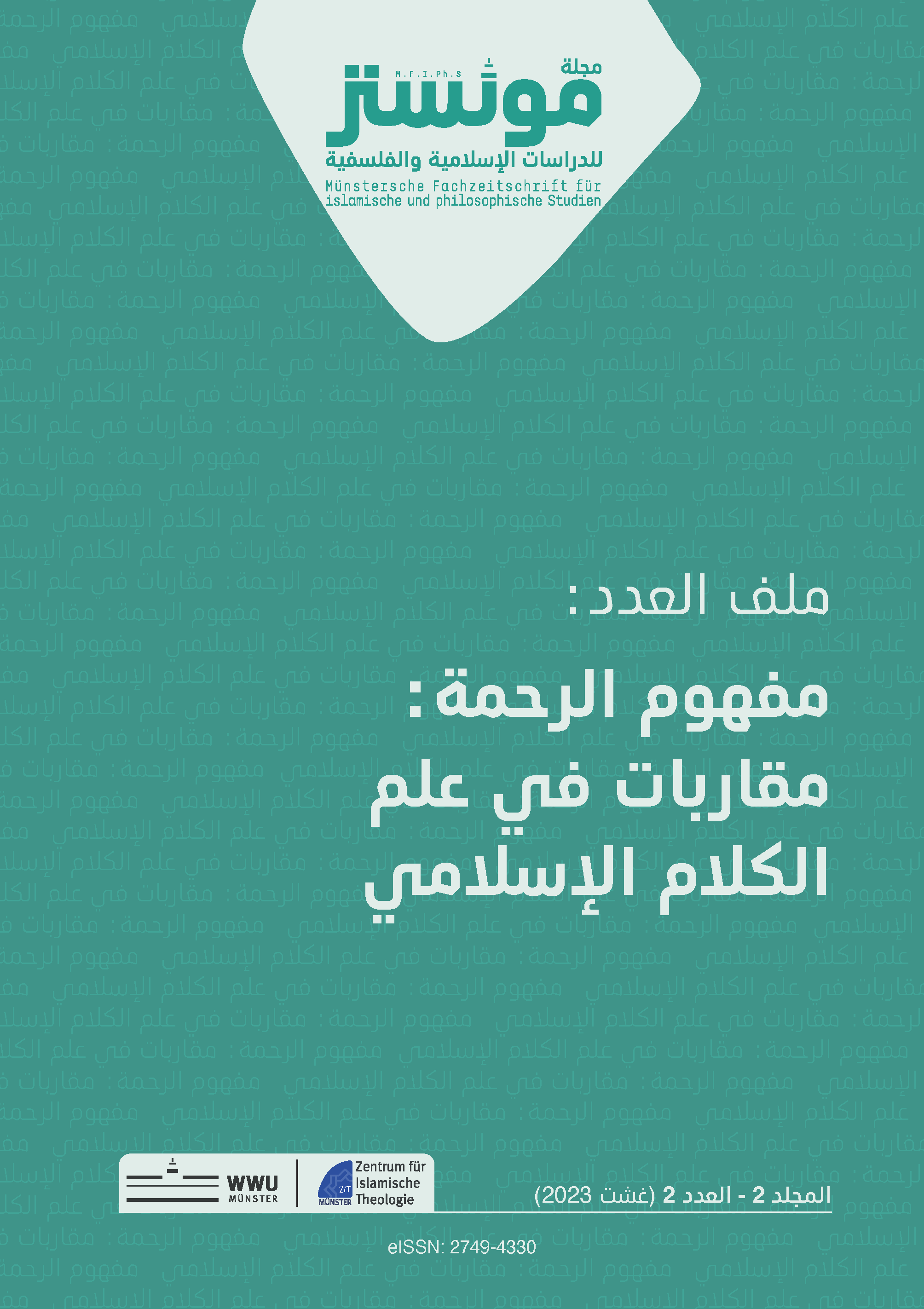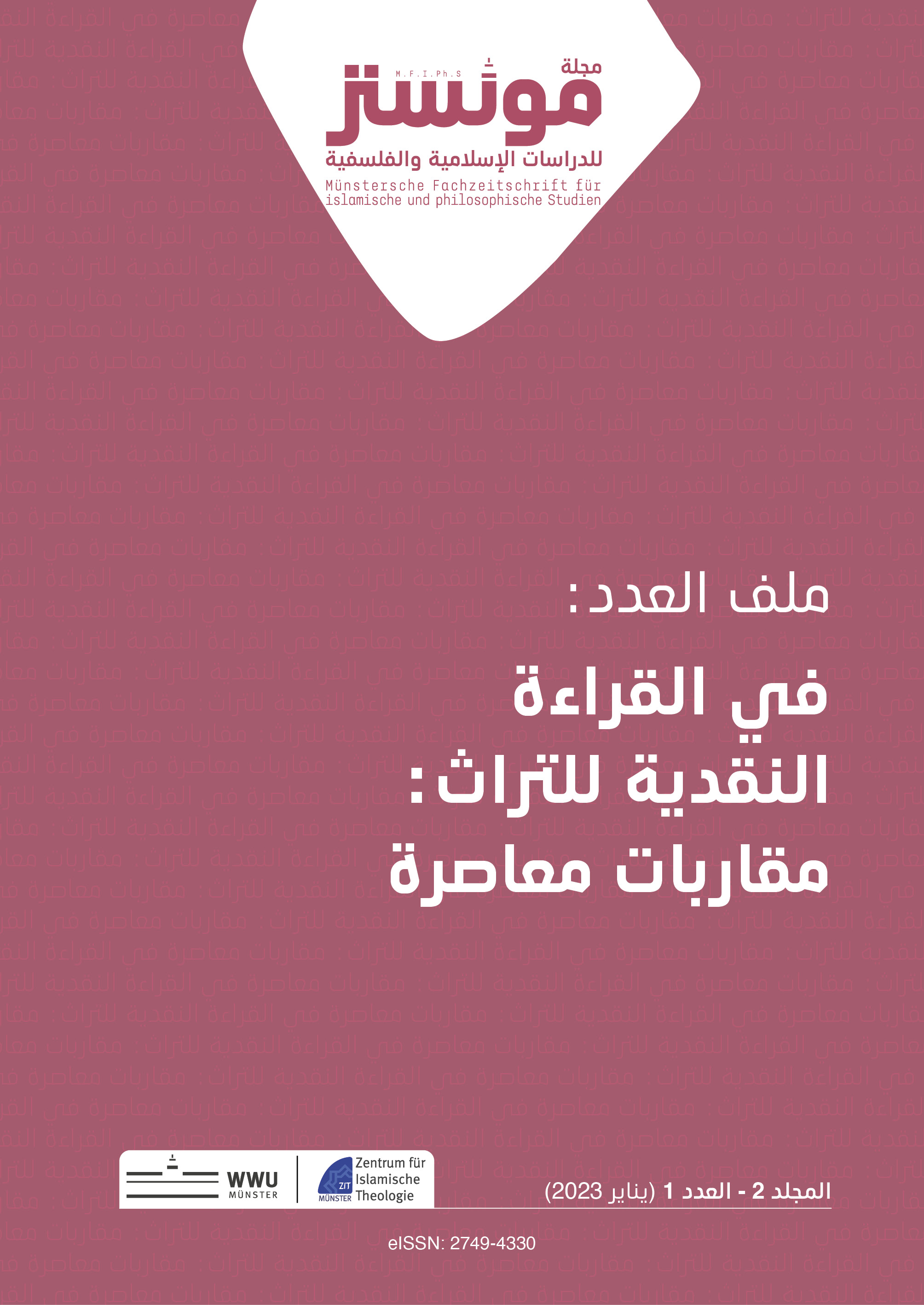Archives
-

General Issue
Vol. 3 No. 1-2 (2024)We are pleased to present to our readers this general issue of the Münster Journal for Islamic and Philosophical Studies. This issue brings together a collection of outstanding research articles that explore various important topics in the fields of Islamic and Philosophical Studies. This compilation reflects our commitment to provide rigorous research that promotes a deep understanding of philosophical and religious issues and aims to open new horizons in these fields.
The issue begins with an article by Najib George Awad, which examines the development of philosophy in the Arab Islamic world through an analytical reading of the concept of 'Islamic philosophy' in the light of the history of philosophical thought in the early Islamic era. The author revisits the early moments when Muslim Arabs in the Abbasid era developed a philosophical discourse influenced by the Greek philosophical heritage of Plato and Aristotle. The article focuses on the philosophical texts of Ya'qub Ibn Ishaq al-Kindi and Abu Nasr Muhammad al-Farabi, drawing conclusions on whether these early texts aimed at Islamizing philosophy or sciences.
Romdhane ben Romdhane's article examines the controversial concept of "Ṣirfa" and its relation to Qur'anic inimitability. The article discusses how this concept developed within the Muʿtazilite school from the 9th to the 11th century, examining its theological and linguistic dimensions and how it was adapted to fit the broader discourse on Quranic inimitability.
Mohamed Oussama Benatallah presents a study of Raffaele Pettazzoni's contributions to the field of religious studies, focusing on his efforts to reconcile phenomenology and history. The article highlights Pettazzoni's critique of classical theories on the origin of religion and his advocacy of a phenomenological approach that seeks to uncover the intrinsic meaning of religious phenomena while integrating the historical context.
Rita Faraj's study sheds light on the work of Elisabeth Schüssler Fiorenza and her methodology in critical feminist liberation theology. The study outlines Fiorenza's four hermeneutical pillars: hermeneutics of suspicion, remembrance, imagination and proclamation, and presents her main conclusions regarding the "Jesus Movement" and the "Ecclesia of wo/men".
The article by I. Howard Marshall, translated by Bouchra Nouassi, provides a comprehensive overview of historical criticism of the New Testament. Marshall explains how the historical sciences are used to understand ancient religious texts, addressing the challenges historians face and the importance of contextualising religious narratives historically.
The articles in this issue conclude with Mohamed Oussama Benatallah's translation of Raffaele Pettazzoni's article on the relationship between history and phenomenology in the study of religion. Pettazzoni argues for a phenomenological approach that maintains the transcendental nature of religion while emphasising the historical context of religious phenomena, advocating a balanced integration of both methodologies.
In the Book Reviews section, Mohammed Eriouiche presents his review of Ḥanafī Fiqh in Ifrīqiya in the 3rd/9th Century by Nejmeddine Hentati.
We hope that these articles will contribute to the enrichment of academic discourse and mutual understanding among researchers and readers in the fields of philosophy and Islamic studies. -

The concept of mercy: Approaches in Islamic theology
Vol. 2 No. 2 (2023)The name of God “al-Raḥmān” The Merciful has roots in the Semitic languages. One of its meanings is “the loving God”. The Qur’ān has come to reinforce this meaning found in biblical texts and by intertextuality with them, as it distinguishes between the name of God “al-Raḥīm”, in the sense of mercy that forgives sins; and between “al-Raḥmān”, in the sense of love, which is a position that goes beyond mere compassion or forgiveness. The Qur’ān also intersects more closely with the New Testament, focusing on this latent meaning as the basis of the relationship between God and humans, where divine mercy is directed towards the love of humanity. This allows for the establishment of a theology of mercy, as is the case with the theology of love in the texts of the New Testament.
Can we today discuss the divine mercy as the foundation of the relationship between God and humans? And within which horizon can we do that?
Through this issue, we aim to reintroduce the concept of mercy to the Islamic theological debate, not in search of a mu'tazili, ash'ari or maturidi establishment of the concept of mercy, but rather to investigate in the history of ideas the reasons for the absence of mercy in the intellectual construction of Islamic discourse, and to search for other possibilities of establishing theological categories, including the “theology of mercy” on “the Bounds of Bare Reason”.
Münster Journal of Islamic and Philosophical Studies hopes that this issue will provide an opportunity for discussion among scholars interested in furthering the study of mercy from various theological and philosophical perspectives.
-

On the critical reading of tradition: Contemporary approaches
Vol. 2 No. 1 (2023)Successive political events in the MENA region have negatively affected Muslim communities and the image of Islam in the world. Such questions as: Is there Enlightenment in Islam? and can Islam be reformed? have become common questions in both the public and academic domain.
The answers varied and multiplied, but they often take two main directions: The first proves the originality of enlightenment in Islam, and that it is an intrinsic characteristic of it, then they separate in defining the field of enlightenment thought in Islamic civilization; The second approach denies the relationship of Islam to enlightenment on the grounds that enlightenment is linked to a historical context and particular conditions, which have not been realised in the Islamic world.
According to the second view, could the Islamic tradition -especially the jurisprudential one associated with authority and the theological one limiting human condition, the reason for the postponement of the Enlightenment question, hence the failure of Islam to assimilate the idea of renewal and reform?
What comes to mind at first glance is the connection of the concept of enlightenment with the concepts of reform and renewal, and then the connection of all these concepts with reason, or to be more precise, with a critical reading of tradition.
From this perspective, we have decided to take up the question we presented in the special issue of the first volume (2022), so that the topic of this issue is: "On the critical reading of tradition: contemporary approaches", which will deal with a number of contemporary debates that have formed, and still form, the basis on which discussions of Islam's relationship to enlightenment, reform and renewal arise.
The presentation of these debates is an opportunity to open a scientific and academic debate on them and the issues they raise, to consider their limits and their potential.




